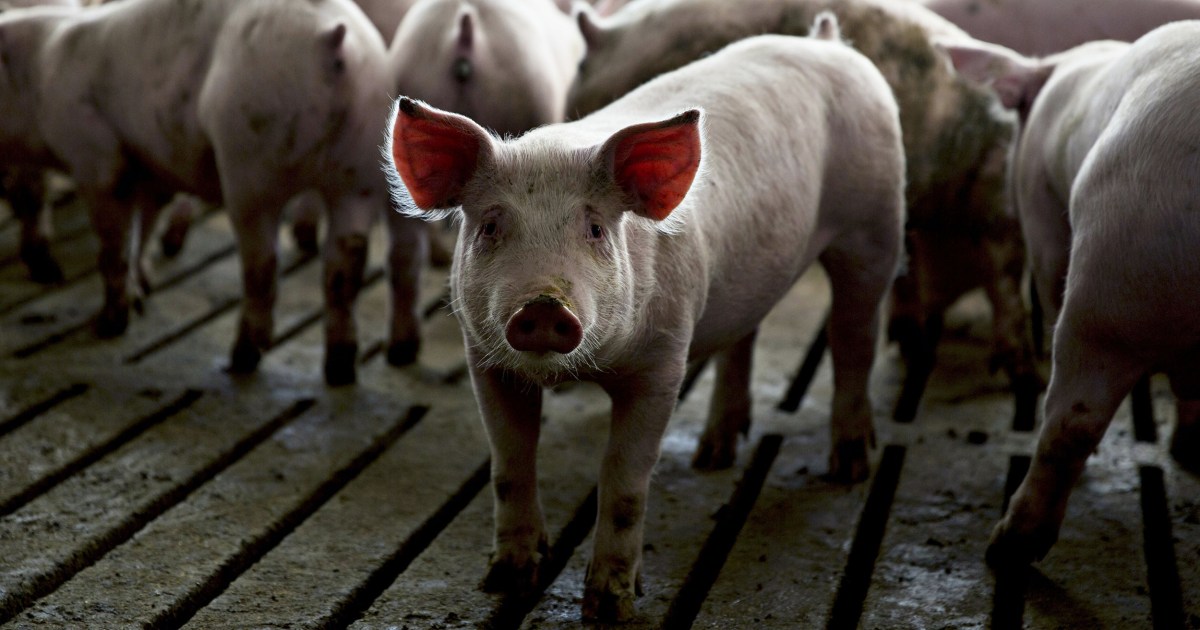California and Texas have such a disproportionate control on industry regulation across the entire country. Either state can pass a regulation like this, jack up the price as a result, and the industry will bow to the regulations and make changes because those states represent such a massive portion of the market. Texas does literally the same thing with school textbook content and has for decades. I find the media representation more interesting than the practice of California and Texas bullying industries into compliance. Just because pork may cost 2 or 3 times as much does not mean it would disappear in the state. This piece smells more like propaganda than journalism.
And once upon a time
"Reg. by Penna Dept. of Agriculture" was printed on every single package of cottage cheese and cream cheese that ever got sold in the United States until the mid-1970's.
And once upon a time every university agricultural curriculum taught that there were TWO basic FARM MODELS, the "Pennsylvania Farm Model" and the "Iowa Farm Model".
How do I know this?
I know this partly due to just having natural childhood curiosity and seeing the labels and then annoying the crap out of MY MOMMY when as a six year old I pestered the grocer, asking what a "Penna" was and what the gobbledygook message on the cream cheese package meant. And much to MY MOMMY'S surprise, he actually stood there and explained it to me as best he could to a six year old.
And I also know this partly by accident by marrying into the family that owned the farm that was originally used AS the Pennsylvania Farm Model,
Maple Lawn Farms in New Park, PA. ... right on the Maryland-Pennsylvania border.
I married into that farm family, and I listened and learned from them.
So, did Pennsylvania HAVE a disproportionate amount of control back then?
Maybe, or maybe not, I guess it depends on whether or not their control was simply benevolent public service or politically motivated manipulation of the markets.
If Maple Lawn Farms was an example it would be decidedly the former, and I am not biased because frankly, my first marriage failed badly...but I know that the farm family I married into are good people and I know that they never became unduly enriched over the hundred and thirty-five years that farm's been in existence.
Does California have a disproportionate amount of control over items like air quality and building standards?
Depends...are you living in a city choked by ghastly smog, or are you picking up the rubble of your unreinforced masonry building after a 4.1 quake leveled most of it due to a fracking induced temblor?
If either are true, you're probably very interested in learning how to build cleaner running vehicles or buildings that can laugh off a 4.1 shaker, and you'll find yourself looking at California style regulations either way.
My own home here in Whittier was built in 1996, two years after the 1994 Northridge Earthquake destroyed large parts of the LA Metro area.
I've already seen it shrug off 4.6 quake since we moved in, not even a crack in a wall, because it was designed to survive a 6.0 or heavier temblor, in accordance with post-Northridge construction updates.
It could be argued that your criticisms have a lot of merit but I'd like to hear more from your position first.


